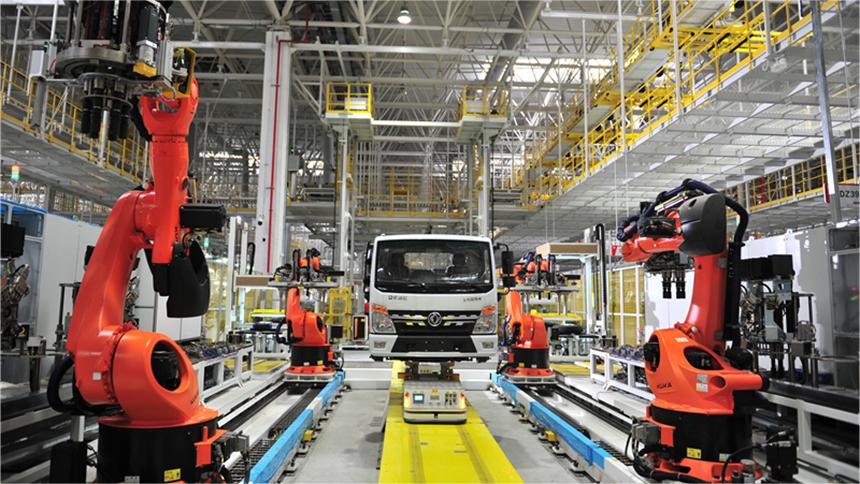Commentary: Three reasons why EU's tariff hikes on Chinese EVs are wrong
BEIJING, June 13 (Xinhua) -- The European Commission's (EC) latest plan to impose provisional extra duties up to 38.1 percent on electric vehicles (EVs) manufactured in China is founded on unsubstantiated claims, sparking serious concerns over trade protectionism and the application of double standards.
The tariff hikes came eight months after the EC self-initiated an anti-subsidy investigation into battery electric vehicles imported from China, including China's homegrown brands like BYD, Geely and SAIC as well as Tesla, BMW and other foreign brands.
The move was prompted by the EC's accusations that China was "flooding" the bloc with cheaper electric vehicles as a result of "overproduction," which the EC attributed to significant state subsidies in China.
However, the rationale justifying the tariff increase seems far from convincing, as evidenced by several factors: the anti-subsidy investigation and its outcome were both politically motivated; China's EV sector actually faces underproduction, rather than overproduction, in the process of transport electrification; and the accusation leveled against China regarding state subsidies is exaggerated and applies a double standard.
First, the anti-subsidy investigation was announced by EC President Ursula von der Leyen in her State of the Union speech in September 2023, just moments before she called for "de-risking" from China, a reflection of how intertwined trade, economy and politics have become.
According to EU rules, an anti-subsidy investigation is usually launched only once a complaint has been lodged by an industry or a Member State. However, in this instance, the EC launched the investigation on its own initiative.
The investigation and tariff hikes coincided with rising trade protectionism on the part of the EU. Since January 2024, the EU has introduced at least 33 trade protection measures against China.
The investigation and subsequent tariff hikes constitute an abuse of power, are unfair to Chinese companies, and have led to significant controversy and divided European public opinion.
A number of prominent European automotive CEOs, including those from Mercedes-Benz, Stellantis, and VW, expressed opposition to the tariff hikes. Moreover, some influential European businessmen in China informed Xinhua that the industry did not ask for tariff hikes, and did not like them at all.
The Brussels-based China Chamber of Commerce in the EU told Xinhua they found that EU automakers believed such tariff hikes would not boost the competitiveness of European brands. Instead, they felt it might hinder their transformation efforts and hurt the EU's carbon neutrality goals.
Second, the EU's claim of "overproduction" in China's EV sector is largely a misconception, conveniently used as a pretext for trade protectionism and double standards.
In 2023, about 80 percent of Germany's automobiles were sold overseas. In comparison, only 12.7 percent of China's new energy vehicles were sold overseas. There is no reason to accuse China of "overproduction."
Instead, China's EV industry faces underproduction in the long run. As transportation electrification advances, increasing demand for EVs is driving automakers to expand production capacity.
Industry statistics showed that in 2023, over 9 million new energy vehicles were sold in China, surpassing a 30 percent market penetration rate. By 2035, sales are expected to exceed 38 million, with a 90 percent penetration rate.
Despite the widespread adoption of EVs in China's largest cities, substantial growth potential remains in China's third- and fourth-tier cities as well as rural markets, guaranteeing sustained demand for EVs in the long run.
In an investigative report published in April 2024, Bloomberg found no data to back claims of China's "overcapacity" in the EV sector, and Chinese automakers' inventories didn't look high either.
Notably, China's EV production boom will also help the world meet the increasingly strong global demand for electric vehicles if the world wants to achieve net-zero emissions.
Last but not least, regarding subsidies, the EU's accusations are overblown. Chinese Vice Minister of Commerce Ling Ji said earlier this month that China found many of the "subsidies" claimed by the EU in the investigation are not considered to be subsidies in terms of WTO regulations.
Among several subsidies available in both the EU and China, subsidies in some EU sectors were found to be higher than those in China, Ling added.
Subsidies are common practices used to support specific industries. Both the EU and the United States have significantly increased their subsidies in recent years. The U.S. "Inflation Reduction Act" offered hundreds of billions of dollars in subsidies for clean energy, including 12 billion dollars in grants and loans for EV makers.
The EU has its "Net Zero Industry Act," aiming to scale up the manufacturing of clean technologies, not to mention the bloc's colossal subsidies for its agricultural sector, which accounts for around 20 percent of the EU's total annual budget.
Some European politicians hold that China's state subsidies resulted in significant competitiveness in the EV sector. However, industry insiders in China attributed it to technology progress driven by fierce competition, complete supply chains, brand-new infrastructure, as well as lower energy and land costs, rather than excessive subsidies.
"Government subsidies play a role, but they may be secondary to innovation: China leads the EU and the U.S. in peer-reviewed publications on green technology," the Bloomberg report noted.
Photos
Related Stories
- China's trade promotion body strongly opposes EU's plan to impose additional EV duties
- Despite opposition, European Commission plans to impose provisional tariffs on Chinese EVs
- EU tariffs on Chinese EVs opposed across Europe
- China deplores EU plan to impose provisional duties on Chinese EVs
- Chinese EV battery giants reject U.S. "forced labor" allegations
Copyright © 2024 People's Daily Online. All Rights Reserved.









